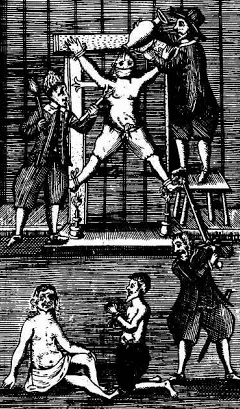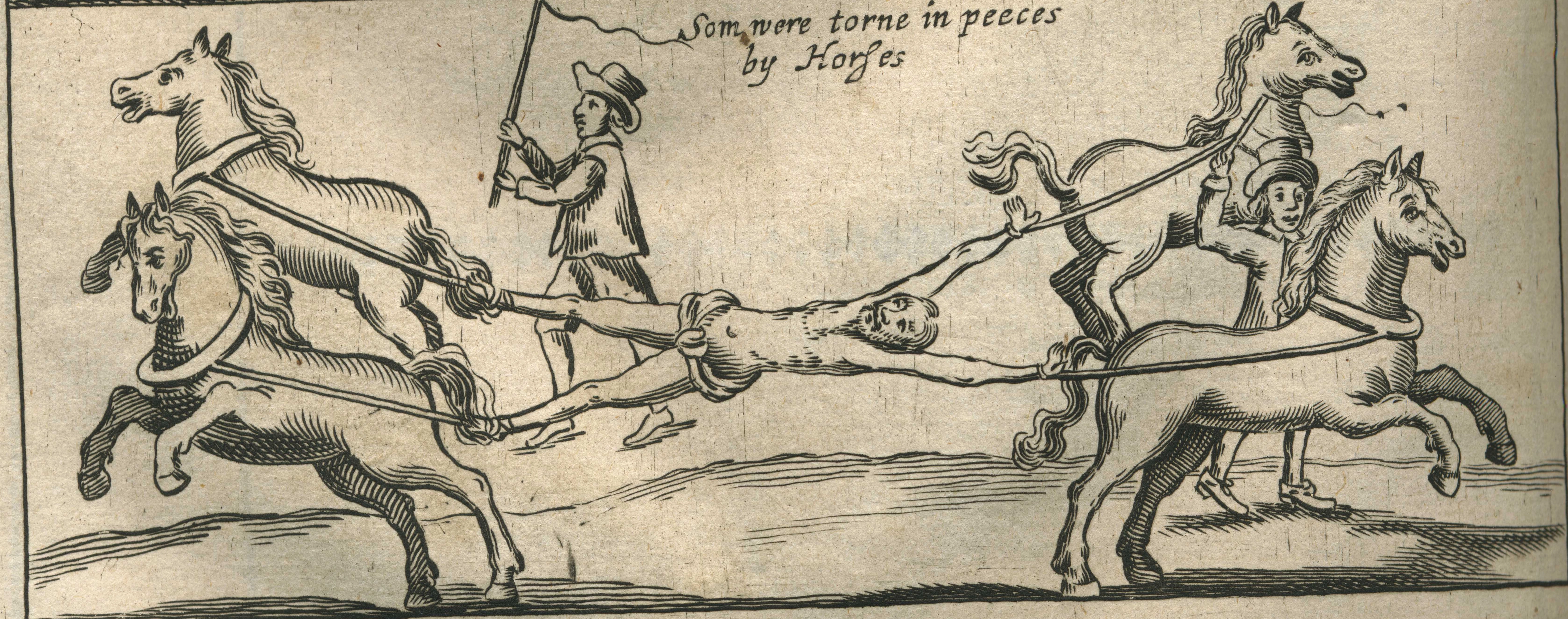Loving one’s enemies
Despite institutionalized punishments that most people today would consider to be cruel, emphasis on compassion - a heartfelt assertion that ‘true Christians haue compassion towards their enemies’ (Thomas Wilson, Saints by Calling: or Called to be Saints, London, 1620, p. 386) - is one of the salient features of seventeenth-century Protestant disco…
The "Pleasant Spectacle" of Suffering
Montaigne, describing a public execution he witnessed while in Rome, expresses his horror at the cruelty of those who invent vnused tortures and vnheard-off torments; to devise new and vnknowne deathes, and that in colde blood, without any former enmitie or quarrel, or without any gaine or profit; and onely to this end, that they…

The Sex Lives of Saints
This is another book I found very useful in my work on early modern attitudes towards suffering. Virgina Burrus, The Sex Lives of Saints (University of Pennsylvania Press, 2007), discusses the saints of the early Christian period, but it got me thinking about how the accounts of these saints were received in the early modern…

Suffering in the Seventeenth Century
During the earlier part of the seventeenth century, religious flagellation still survived, even in Protestant England. John Gee (a Church of England clergyman) recounts how, during the reign of James I, Catholic flagellants marched in procession to Tyburn, and partly endorses the practice, declaring himself ‘no enemy vnto austerity of life, and tam…

